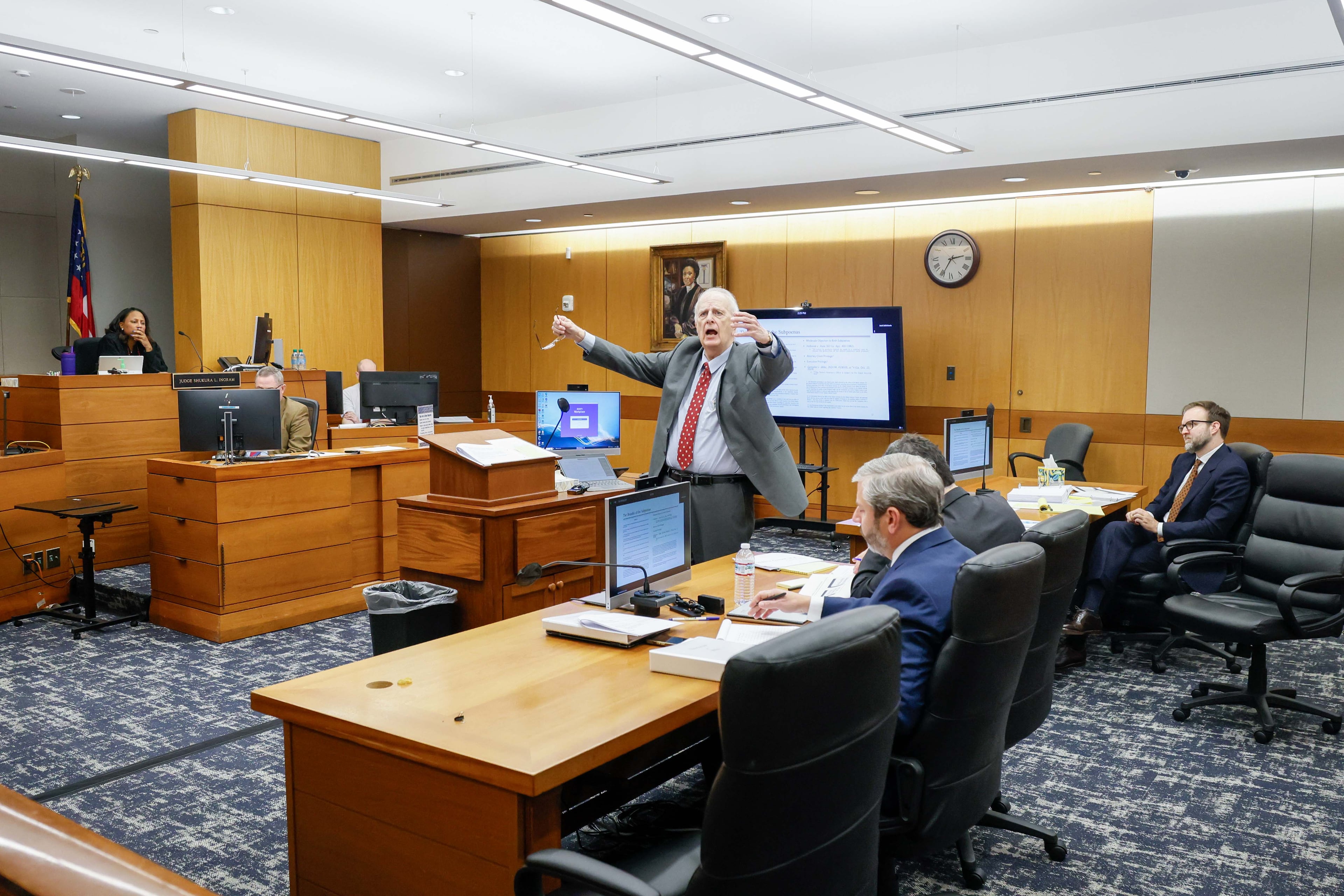Judge weighs whether Georgia Republicans can subpoena Fani Willis

For the first time, a Georgia judge entertained arguments about the scope of the Georgia Legislature’s subpoena powers.
The legal fight, which Fulton Superior Court Judge Shukura Ingram heard Tuesday, will determine whether GOP leaders of a state Senate committee can enforce a pair of subpoenas seeking documents and testimony from Fulton County District Attorney Fani Willis.
The lawmakers would like to compel the Democrat to publicly answer potentially embarrassing questions about her romantic relationship with Nathan Wade, the outside attorney she tapped to lead her 2020 election interference case against Donald Trump and his allies.
During a nearly two-hour hearing, attorneys for the Special Committee on Investigations argued that the panel, which was created by the Senate earlier this year to probe Willis and her conduct, has the authority to subpoena records and testimony as part of its investigative duties.
“The General Assembly has an express authority to look at and therefore legislate over issues of district attorneys’ offices and their practices,” said Josh Belinfante, an attorney for the committee.

Willis’ legal team, led by former Democratic Gov. Roy Barnes, argued that only both chambers of the General Assembly acting together or the House or Senate ethics committees had the authority to grant subpoenas. Not only that, but Barnes said that the Senate panel did not have the authority to issue the summons when it did because the Legislature had already adjourned for the year.
Barnes contended that the requests were overly broad, seeking privileged information, and that they were politically motivated and designed to embarrass the DA.
“They were targeted at one individual,” he said, “targeted at interfering with one prosecution as done at the behest of the president-elect, and is pushed by Georgia elected officials who in the first place sought to undermine the 2020 election.” Barnes was referring to several Republicans members of the Georgia Senate who were involved as GOP electors met at the state Capitol in December 2020 and in other efforts that questioned the election results.

Senators created the Special Committee on Investigations in January, just weeks after news surfaced that Willis had been in a romantic relationship with Wade. Defense attorneys seeking to kill racketeering charges against Trump and more than a dozen other codefendants sought to have Willis and her office removed from the election case, calling the relationship a conflict of interest.
In March, a trial judge allowed Willis and her office to stay on as long as Wade stepped aside, but the ruling has been appealed and is currently pending before the Georgia Court of Appeals.
The appeal didn’t stop the committee from subpoenaing a slew of documents from Willis, including years worth of communications between her and Wade; information about his hiring and pay; the office’s federal grant funding; and interactions with the White House, Justice Department and members of Congress regarding the elections case. Senators also sought to compel Willis’ attendance at a September hearing, which the DA declined to attend as she fought her summons in court.
Belinfante said there is nothing in the state Constitution preventing the Senate or the special committee from issuing and enforcing subpoenas and that Willis had “no evidence” that the panel was doing anything on behalf of Trump. His co-counsel, Vincent Russo, said that even after the General Assembly adjourns in the spring, the Legislature’s term is two years long, which he argued invalidates Barnes’ argument that the subpoenas were improperly issued.
The committee is asking that Ingram require Willis to comply with the subpoenas or find the veteran prosecutor in contempt for failing to obey.

Ingram did not indicate how or when she would rule on the issue. Whichever side loses is expected to appeal the decision to the state Supreme Court.
Willis did not attend the hearing, but two of the committee’s GOP leaders did, including Chairman Bill Cowsert, R-Athens.
Cowsert previously told the AJC he is considering legislation that would set ethical guidelines for DAs around the state, as well as limit the use of special grand juries and special prosecutors. (Wade was one of three special prosecutors on the case, and Willis utilized a special grand jury to help compile evidence and testimony back in 2022.)
The committee will only exist through next month, until the new legislative session begins. But Cowsert or other lawmakers could introduce bills related to the issues discussed during the committee’s tenure.

In another development that came late Tuesday, a Fulton judge ordered Willis’ office to turn over documents it sent to Justice Department Special Counsel Jack Smith and the U.S. House Jan. 6th Committee to Judicial Watch, a conservative nonprofit.
In August 2023, Judicial Watch filed an Open Records Act request with the DA’s office seeking those records. When the DA’s office said it did not have them, Judicial Watch filed suit this past March.
Staff writer Bill Rankin contributed to this article.



